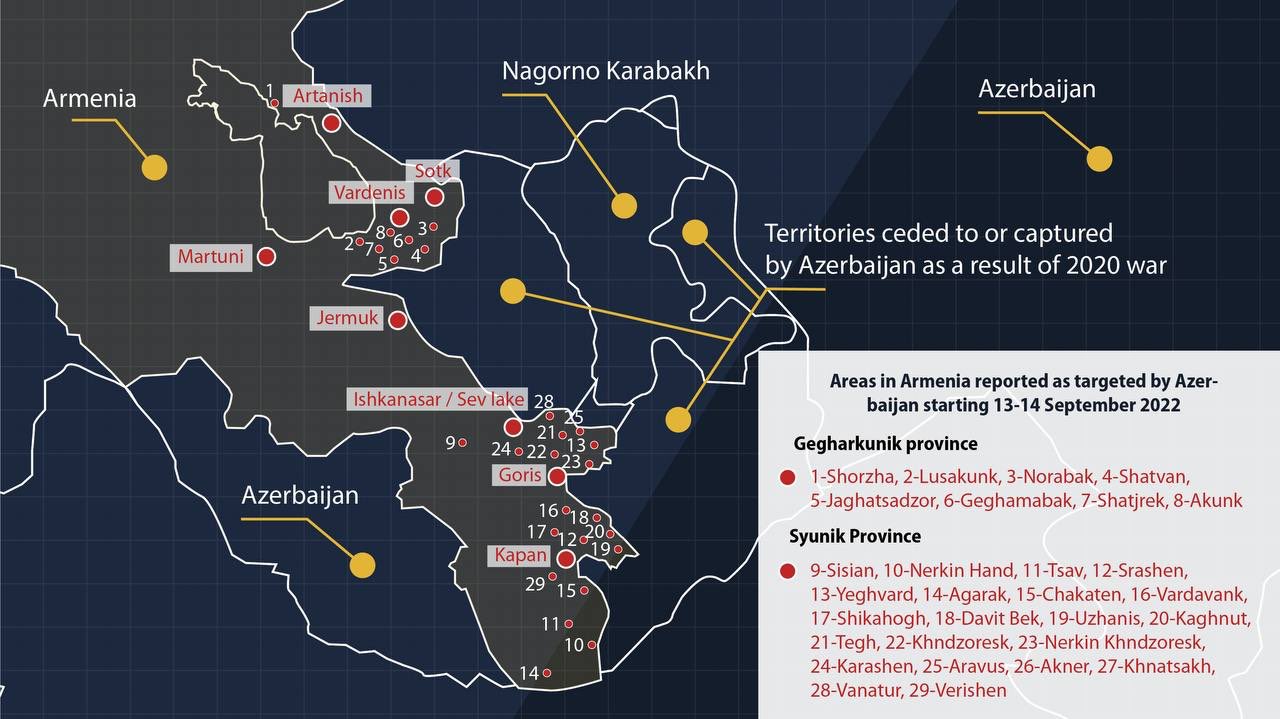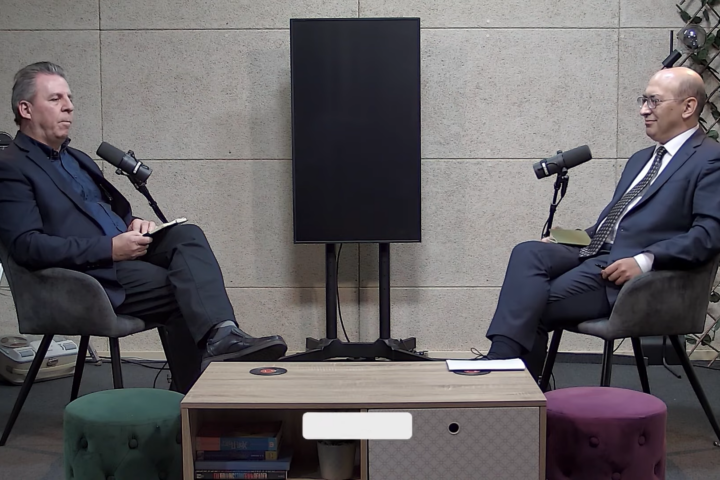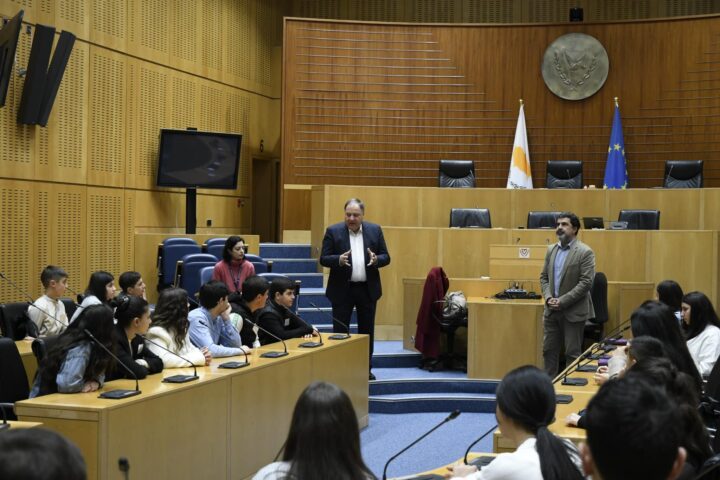“Our historical lands are the Erivan khanate (i.e. Yerevan), the Goycha (i.e. Lake Sevan) and Zangezur (i.e. Syunik) Mahals. The time will come when we will live there. I believe in and am sure of that. To achieve this, each of us has to make an effort.”
Ilham Aliyev, September 18, 2013
If history has taught us anything, it is that we should never ignore the threats or any other types of messages coming from the handbooks of dictators, such as this quotation from the President of Azerbaijan.
Following the 44 days-war in Nagorno-Karabakh, the Azerbaijani leader has renewed his attempts to dismember Armenia and “return to historical lands”.
Although one might wonder about “historical” claims of a state created in 1918, i.e., Azerbaijan has towards another state, present on the political maps of the world since sixth century BC, i.e., Armenia.
But this means little to a leader who has a very different view of the principles of international law and who has time and again reiterated his belief that might is right.
It also seems that the ceasefire statement from 2020, November 9, signed by the Presidents of Russia, Azerbaijan and the Prime Minister of Armenia, which put an end to the Second Karabakh War, has been interpreted according to this thinking.
The statement mentions the word “corridor” once, which is done in the context of the Lachin Corridor connecting Armenia with Nagorno-Karabakh.
Nevertheless, this has not kept the Azeris from mistaking their fervent desire for reality – i.e., for access to a “corridor” (with the right of extraterritoriality) connecting eastern Azerbaijan to its exclave of Nakhijevan (and, more importantly, to Turkey).
For starters, article 9 of the statement mentioned above reads:
“All economic and transport connections in the region shall be unblocked.
“The Republic of Armenia shall guarantee the security of transport connections between the western regions of the Republic of Azerbaijan and the Nakhchivan Autonomous Republic to arrange unobstructed movement of persons, vehicles and cargo in both directions.
“The Border Guard Service of the Russian Federal Security Service shall be responsible for overseeing the transport connections.”
By misreading and misrepresenting this article Azerbaijan, backed by its main supporter – Turkey, has conducted a policy of intimidation and blackmail against Armenia.
Therefore, on 13 September at 00:05 local time, Azerbaijan launched large-scale military aggression in several directions from the eastern part of the Armenia-Azerbaijan border.
The Azerbaijani armed forces, using heavy artillery, MRLs and combat UAVs, started intensive shelling of the cities of Goris, Jermuk, Vardenis, Kapan, Sotk and nearby villages.
Azerbaijan’s attacks on Armenian soil target not only military but also civilian infrastructure.
Some 105 Armenian soldiers have been killed, many more injured, and Azerbaijan has occupied 10 square km of territory in Armenia.
Two of the young boys killed, defending their fatherland, are from Aragatsavan, a village near the Armenian-Turkish border, where my grandparents moved in 1953 (my family is originally from Erzurum) and where my father grew up.
These figures may rise if Azerbaijan continues its aggression.
The map presented clearly shows that the attacks are happening inside Armenia, in the eastern and south-eastern areas of Armenia.
Armenia is under attack! The sovereignty of Armenia is put under question!
For the first time, Armenia has appealed to the United Nations Security Council for an urgent meeting.
The results of this or any other international discussions cannot be pre-judged, but I refuse to accept that Armenia is doomed.
Only obstacle
Armenia’s heroic soldiers are indeed the only “obstacle” standing against the Azeri invasion, but there are several steps that could and should be taken by the international community to stop a full-scale war.
First of all, targeted statements condemning the attack by Azerbaijan on the sovereign territory of Armenia should intensify (the United States, France, Canada, Cyprus, Luxembourg, and many others, as well as European Parliament Members, have issued statements identifying the aggressor and urging for an immediate cessation of hostilities).
Any other statement is putting equanimity between an aggressor and its victim, all sorts of “political correctness” appealing to “both sides” enable the aggressor to act in an atmosphere of impunity and thus cause more destruction and death.
Second, economic interests are insufficient for continuing “business as usual” with a state that has made a mockery of international law, competing with other dictatorships in its abysmal level of human rights and lack of any trace of democracy.
Thus, essential revision of all types of communication and relations with Baku is a must.
On its 30th anniversary of relations with several European countries, Azerbaijani diplomats are not talking about shared values but about their energy resources and importance to Europe, especially considering the looming energy crisis.
Since when has oil become a value?
Why should Azerbaijan be seen as a reliable energy source for the world when its regime type, the amount it offers, and the route (running through Turkey) can be assessed as anything but “reliable”?
Third, if appeals to stop the attacks against Armenia fail and the aggression continues, support for Armenia should increase, and sanctions should be applied against Azerbaijan.
After the attacks on Armenia, a western analyst wrote in desperation that “a nation that faced genocide in 1915 cannot find peace in 2022.”
This is the sad truth, and it is also true that Azerbaijan poses an existential threat to Armenia and Nagorno-Karabakh, but I cannot accept that there is no hope for peace.
Peace must be imposed; to accomplish that, Armenia should not and cannot act alone.
The steps mentioned above, if applied consistently, can stop the expansion of hostilities into something more catastrophic – a large-scale war.
But for that to happen, more consistency, straightforwardness and principled stance are needed worldwide, on multilateral and bilateral levels. On all levels.
Tigran Mkrtchyan is Ambassador of the Republic of Armenia to the Hellenic Republic, Cyprus and Albania










